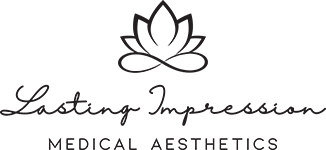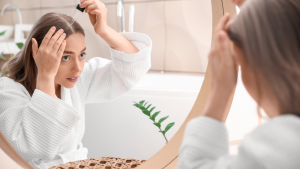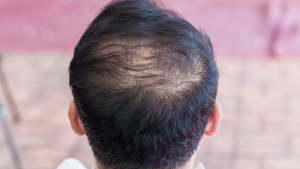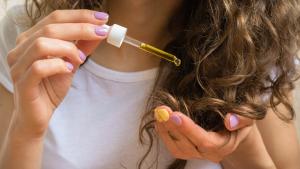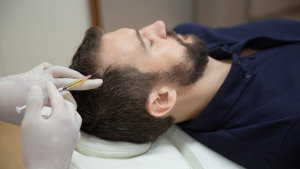Hair loss is a problem that many people struggle with. It can be triggered by various reasons, including heredity, stress, vitamin deficiencies, hormonal changes, and other medical conditions. Loss of hair affects a person’s overall confidence and can lead to low-esteem in most cases. Although there are several factors that cause hair loss, changes in diet and exercise can do wonders to promote the regeneration of hair follicles.
The growth of hair is a complex process that requires vitamins, nutrients, and enzymes. A vitamin deficiency can cause hair fall and limit the growth of hair to its full potential. While factors such as genetics, hormones, and age also affect hair growth, optimal nutrient intake is key to hair growth and maintenance.
Below are some vitamins and minerals that are important to hair growth:
Vitamin A
The cells in our body need vitamin A for growth. This includes hair which is the quickest growing tissue in the human body. Vitamin A helps skin glands produce sebum which moisturizes the scalp and keeps hair healthy. A study has shown that patients with alopecia areata had low blood levels of Vitamin A. As Vitamin A is a powerful antioxidant, its supplements can aid hair growth.
Vitamin B
Vitamin B deficiencies can cause dizziness and fatigue, along with weak hair and hair loss. One of the most effective vitamins for hair growth is a B Vitamin called Biotin (B7). It supports hair growth by strengthening the keratin structure of the hair shaft. Another effective vitamin for hair growth is B5 or pantothenic acid, which is often found in hair growth products.
Vitamin E
This is a fat-soluble vitamin and a potent antioxidant that prevents damage to tissues and cells caused by free radicals. Vitamin E helps support hair growth by ensuring circulation in the scalp and reducing the damage caused by free radicals to hair follicles. A study showed that people suffering from hair loss experienced a 34.5% increase in hair growth after taking Vitamin E supplements.
Vitamin C
The damage caused by free radicals can block hair growth and cause it to age. Vitamin C is an effective antioxidant that protects hair against the oxidative stress caused by free radicals. Vitamin C plays an essential role in collagen production and the absorption of iron. Collagen is an essential nutrient that keeps skin and hair healthy. It is also necessary for the development and repair of all tissues throughout the body.
Vitamin D
Vitamin D plays a major role in maintaining immune health. A weak immune system can sometimes attack the body’s hair follicles, causing slow growth and hair loss. Research shows that Vitamin D promotes hair growth, and low levels of Vitamin D can also cause alopecia in some cases.
Zinc
The mineral Zinc plays an important role in cellular metabolism, protein synthesis, and general immune function. It is responsible for making proteins in hair and other cells of the body. Studies suggest that people experiencing some forms of hair loss have low levels of Zinc, and taking its supplement may contribute to hair growth. Signs of low zinc levels include poor wound healing, hair loss, and a weak sense of taste and smell.
Iron
Iron is an essential mineral that plays a role in the production of hemoglobin, a substance in red blood cells that carries oxygen throughout the body, including cells that help in hair growth. Iron supports hair growth by allowing healthy circulation and transportation of oxygen and other nutrients to hair follicles. Women usually suffer hair loss due to iron deficiency.
Magnesium
The body needs magnesium for the growth, division, and function of cells. It participates in around 300 biochemical reactions in the body, including hair growth. Low magnesium may contribute to loss of hair or weakening, especially in women going through menopause.
Selenium
Selenium has antioxidant properties, which help reverse some of the damage to tissues and cells caused by free radicals. It contributes to the health of joints, reproduction system, immune system and is required in enzymes for hair growth. In combination with Zinc, selenium supports hair growth by maintaining metabolism, healthy hormone levels, and the production of hair.
Conclusion
Food is the ideal source of the vitamins and minerals that the body needs for hair growth. While some nutrients are found in food, there are others that have to be obtained from other sources. If you are unable to get enough vitamins and minerals from your diet, supplements can provide a healthy alternative. It is wise to consult a doctor before including a supplement in your diet, as large doses of vitamins and minerals may be harmful if you are not deficient. The best way to get essential nutrients is by eating a well-balanced and real-food-based diet.
